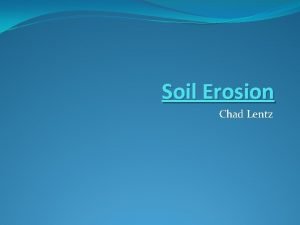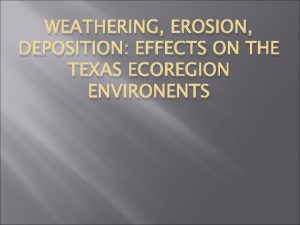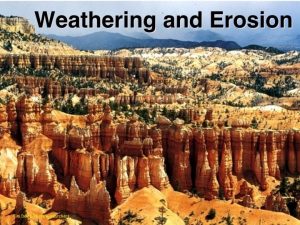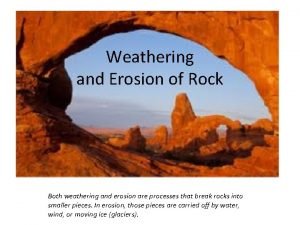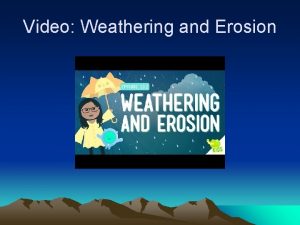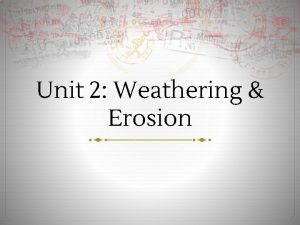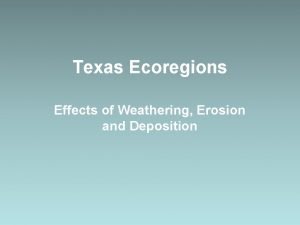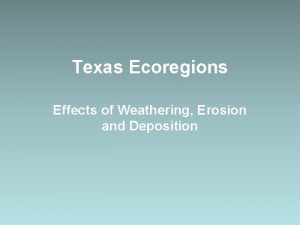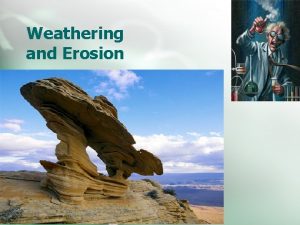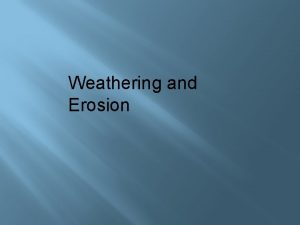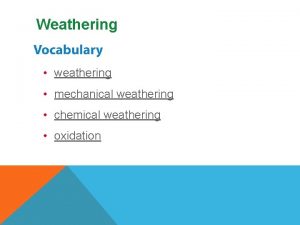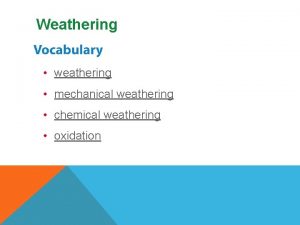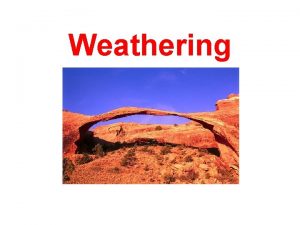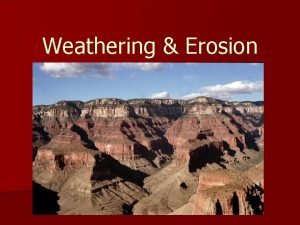WEATHERING AND EROSION Fall 2013 Weathering vs Erosion









- Slides: 9

WEATHERING AND EROSION Fall 2013

Weathering vs Erosion ◦ Weathering is the chemical and physical processes where big rocks are broken down into smaller rocks. ◦ Erosion is the removal and transport of weathered material from one location to another. Weathering Erosion

Weathering vs Erosion

Weathering ◦ There are two types of weathering 1. Mechanical Weathering 2. Chemical Weathering Something to think about…… How do you think they are different? ? How do you think they are similar? ? ?

Mechanical Weathering ◦ Also known as physical weathering ◦ When rocks break down into smaller pieces without changing their composition. ◦ Has 2 parts: temperature and pressure. ◦ A. Temperature: If the temperature drops to the freezing point of water, it freezes, expands, exerts pressure on the rocks, and may cause them to split. This is called frost-wedging. ◦ B. Pressure: Exfoliation is the process where outer rock layers are stripped away over time. The roots of plants can also exert pressure causing rocks to split.

Examples of Mechanical Weathering

How frost wedging happens

Chemical Weathering ◦ The process where rocks and minerals change their chemical composition. ◦ 4 agents of chemical weathering: 1) water - Hydrolysis is the chemical reaction of water with other substances. 2) oxygen - Oxidation is the chemical reaction of oxygen with other substances. 3) carbon dioxide - When this combines with water in the atmosphere, it forms acid that dissolve rocks carbonic 4) acids – An acid has a p. H lower than 7. Acid rain dissolves the rocks and is harmful to wildlife.

Examples of Chemical Weathering Water Oxygen Carbon Dioxide Acid
 Difference between rill erosion and gully erosion
Difference between rill erosion and gully erosion Deposition in edwards plateau
Deposition in edwards plateau Difference between weathering and erosion
Difference between weathering and erosion Weathering and erosion jeopardy
Weathering and erosion jeopardy Erosion video bill nye
Erosion video bill nye Erosion and weathering video
Erosion and weathering video Weathering and erosion difference youtube video
Weathering and erosion difference youtube video Questions on weathering and erosion
Questions on weathering and erosion Edwards plateau weathering erosion deposition
Edwards plateau weathering erosion deposition Weathering in trans pecos
Weathering in trans pecos
